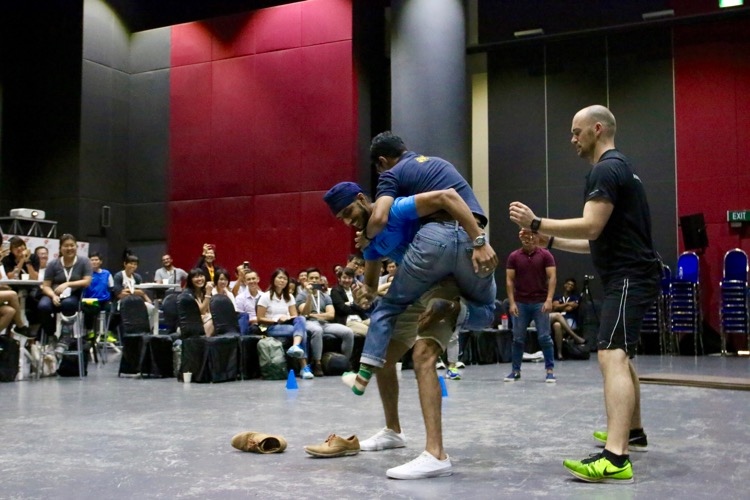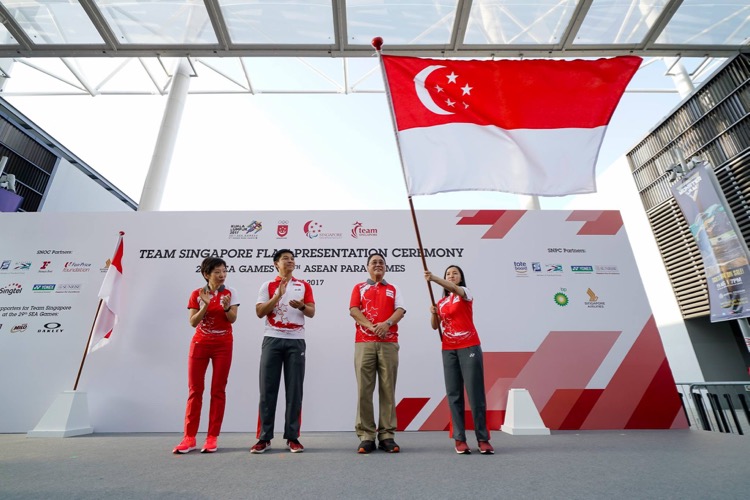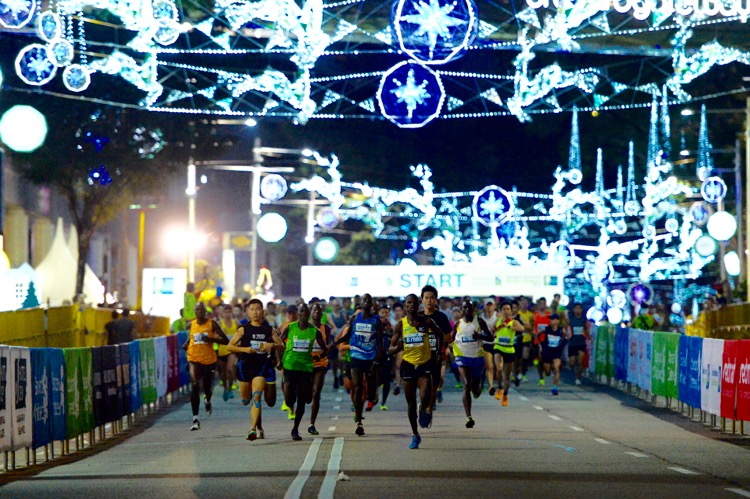By Poh Yu Khing, Sport & Performance Psychologist
Marathon running involves great mental discipline. Two-time New York marathon winner German Silva of Mexico once said, ”Sometimes I run more with my mind than with my body.” The mental work required to complete a marathon successfully also help us achieve excellence in other life endeavours as well.
What does this mental process involve?
DEFINE YOUR MISSION CLEARLY
What is your goal? How are you going to achieve it? Why are you doing this?
There are 3 elements to defining your mission clearly: (i) outcome goal(s); (ii) process goals, and (iii) power reasons.
1. Outcome goal – Research shows that no matter what area of life, people who set goals are much more likely to achieve success that those who don't. An example would be "I want to complete the marathon in under 4 hours." If you don't already have an outcome goal, stop now, think about it, and set one for yourself.
2. Process goals - Many people set outcome goals, but fail to elaborate on detailed process goals. Process goals help you map out what steps you need to commit to in order to achieve the outcome that you want. For example, how much mileage you must clock in training each week, how much rest, and what kind of diet etc. To complete a marathon, you should have a specific training plan with specific training targets (or process goals) in place. If you haven't already done so, write out your goals and keep a training log to monitor your progress.
On the day of the marathon, process goals also play an important part in helping you complete the run. Examples include keeping to a certain pace for each stage of the run, hydrating at regular planned intervals, etc. Being clear about the process is what leads to success. Focus on the process, get that right, and the outcome will take care of itself.
3. Your ‘Power Reason'. Goals alone may not be sufficiently motivating. What does completing the marathon actually mean to you> Why do you want to run the marathon in the first place? Why is achieving your goal(s) important to you? What will it represent?
In marathon running, as in life, when the going gets tough, clarity about the underlying "why" establishes a strong foundation, and drives each of us to continue through the pain, to persevere through adversity, and to reach for the prize.
There are many reasons why people take part in marathons. What is your reason? Is it to give yourself a new mental and physical challenge? Or to get physically fitter? Or to train your personal discipline and mental toughness? Is it a powerful enough reason to see you through the tough times?
Come up with your own ‘Power Reason' statement today. Here is one way of starting it: "I want to train for and run the marathon in order to…"
PRACTICE MENTAL CONTROL
1. Positive self-talk. The first aspect of mental control is what I call ‘controlling the conversations in your head'. The way you speak to yourself has a dramatic effect on the way you perform in any given situation. Successful people control the conversations in their head, whereas others let the conversations control them.
In marathon running, it is very easy to slip into judgment and doubt about the way you are running or feeling. Thoughts like ‘I feel horrible today', ‘My leg is sore', ‘I don't think I can finish' can easily creep in and dominate your thoughts.
Instead of entertaining these negative thoughts and letting them overwhelm you, take control. Redirect your thinking to positive affirming statements, such as: “I can do this”, “Stay relaxed and keep going", "One stage at a time”.
Simple positive cue words can also help you to re-direct your focus on the task at hand - words like: kick, pace, smooth, rhythm, breathe, relax, feel, flow, float, faith, finish.
2. Attention and focus. This second aspect of mental control is about what you choose to pay attention to. There is a difference between how top marathoners and other runners focus their attention. Elite runners focus more on their body signals while lesser competitors benefit more by letting their minds wander and tuning in to their environment.
It makes sense for top marathoners to monitor their physical condition during performance to check that they are on track - their running technique, their pace, their breathing, how their body is feeling, etc. It's like a high-tech race car with all the monitoring dials showing the status of the car through the race - except this is all done in the mind. Examples such as:
- Pace: not too slow, on track.
- Stride: smooth rhythm.
- Breathing: nice and easy.
- Body & posture: relaxed and loose, lean forward.
For recreational runners, spending too much time monitoring your physical status might be counterproductive as you might end up paying more attention to the pain signals and negative thoughts. Rather you should dissociate from the task at hand. Distract your mind, think about something else totally unrelated. Sing a song in your head and let the rhythm guide your run. Look at the surrounding scenery and appreciate the natural beauty.
During the race, your legs are going to tire, your feet will hurt and you'll want to give up. Instead of monitoring your body signals and feeling more of the aches and pains, this is the time to dissociate yourself from the discomfort. Instead of looking down at the floor, look up, look around, focus externally. If you like, take your MP3 music player along to entertain yourself. The main idea is to stay alert and focused ON SOMETHING ELSE when your body is starting to fatigued.
RUNNING THROUGH ‘THE WALL’
‘The wall' is both a state of mind as well as a state of the physical body. As you fatigue and get more tired, more pain signals will be going to your mind. If you start to pay more and more attention to these pain signals, negative thoughts will start to take over. These will lead to further tension and tightness which makes running even more difficult. A point comes when the mind just says "STOP" and that's when you've ‘hit the wall'.
For most marathon runners, hitting the wall is real. But successful runners understand that ‘the wall' is something that can be minimised through proper mental control and relaxation during the run. You will feel pain during the race so try not to fight against it, rather accept it and continue running. Stay relaxed, stay positive, and push on. Also, make sure you are sufficiently hydrated through the race as this will help both your physical condition and your mental performance.
Imagery and visualisation. If you do start to struggle, visualise yourself running freely and easily - smooth, light, floating steps. Stretch your creativity and imagine anything to help you go on. Imagine people pushing you from behind, or your loved ones cheering you on at the finish line. Imagine having a nice slow jog along a cool beach. Imagine springs attached to your shoes. Imagine crossing the finishing line and the satisfaction that you will feel. Imagery can be very powerful. It's really only limited by your creativity.
TIPS FOR RACE DAY
To close, here are some tips for race day:
Stay stress-free and happy. Make your race day stress free by taking care of the basics. Pack your gear the night before, arrive at the start place early, settle your post-race transportation arrangements. Avoid becoming frazzled, stay stress-free and happy. Let nothing disturb you. Energy conservation is important – stay loose, relaxed, and enjoy yourself.
Develop a race plan and stick to it. Use simulation exercises to develop a clear picture of how you want to run the race. What pace you want to go at. When and how much you want to hydrate. Don't get caught up in the excitement of the moment and deviate from your plan. You will only pay for it later on in the race.
Feel like the first half of the race is a relaxing jog. If you are not a very experienced marathoner, don't be fooled by the amount to energy you feel at the beginning of the race, and go out at too fast a pace. It's a MARATHON and not a sprint. (Besides, if you have spare energy at the end, it's always good to look energetic for a photo finish!)
Aim to complete small segments at a time. If you aim to complete the next 5km, that should be easy enough as you have done so many 5km runs before. Stack up eight 5km runs and you're almost done with the marathon. Alternatively, find runners that you can pace with, or aim to catch up with certain runners ahead of you.
Maintain positive imagery and self-talk. On race day, you've got to be your own biggest ‘fan'. See yourself crossing the finish line in your mind. Cheer yourself own with positive statements and self-talk. Conquer the voice of negativity inside you.
Poh Yu Khing was formerly the Head of Sport Psychology at the Singapore Sports Council. An ex-national badminton player, he has also taken part in small endurance events such as the half-marathon and mini-triathlons. In his spare time outside of his day job, he enjoys consulting with athletes and performers as a freelance sports & performance psychologist. He was also the author of a regular "Golfing Mind" column in the local GOLF magazine.











Leave A Comment